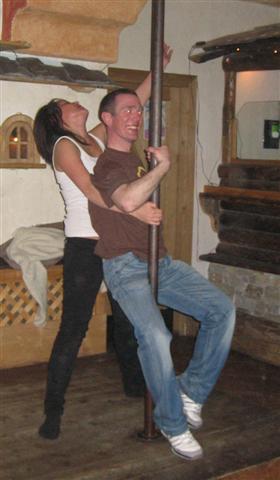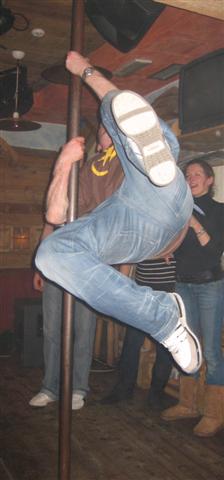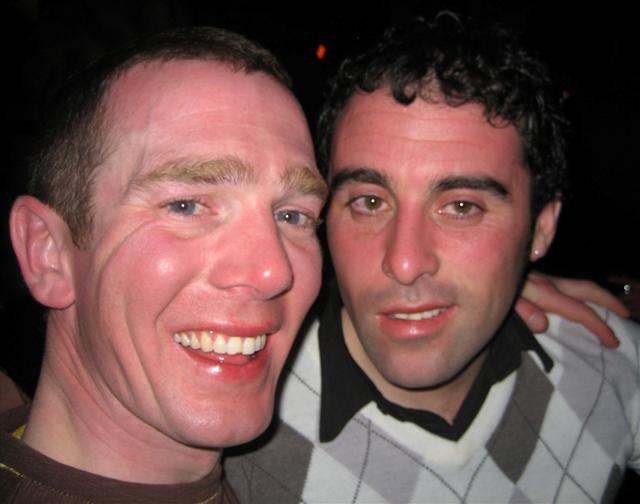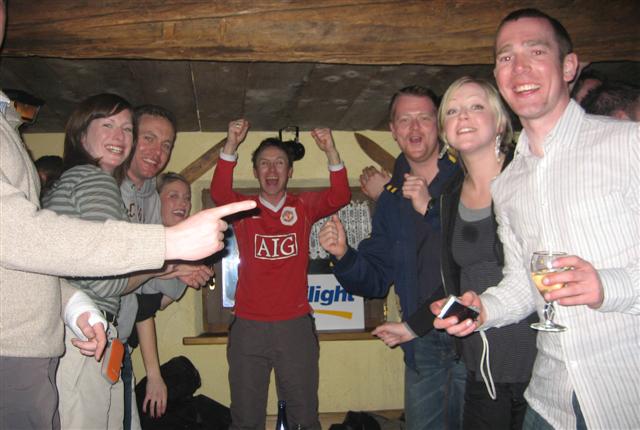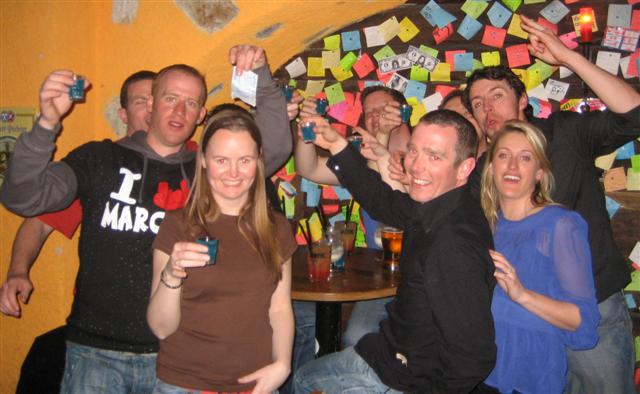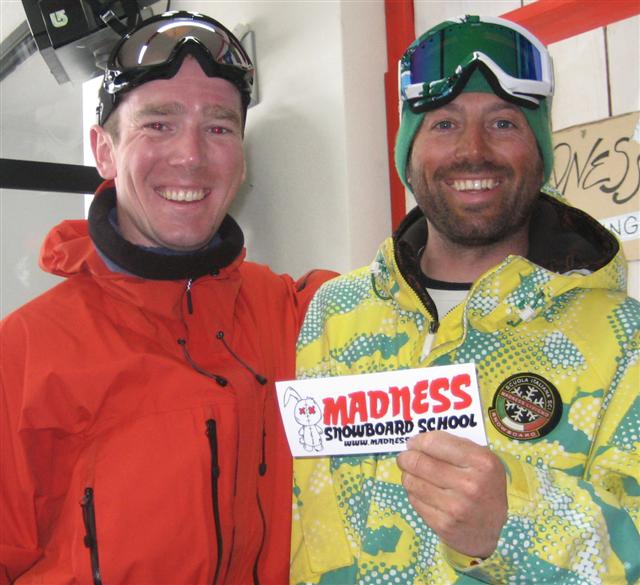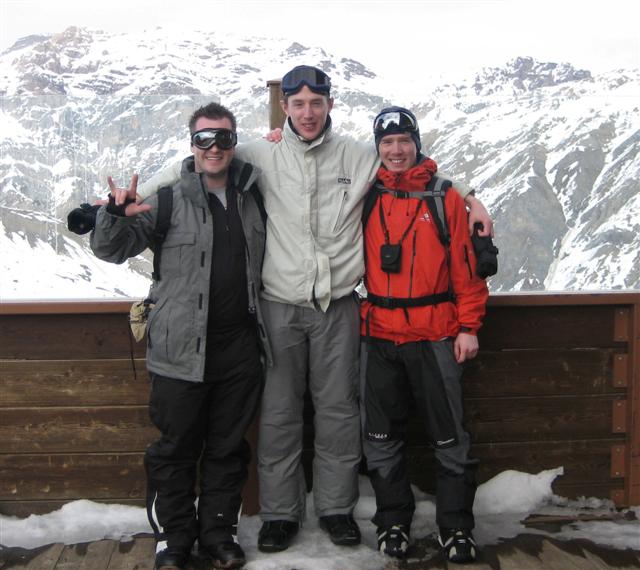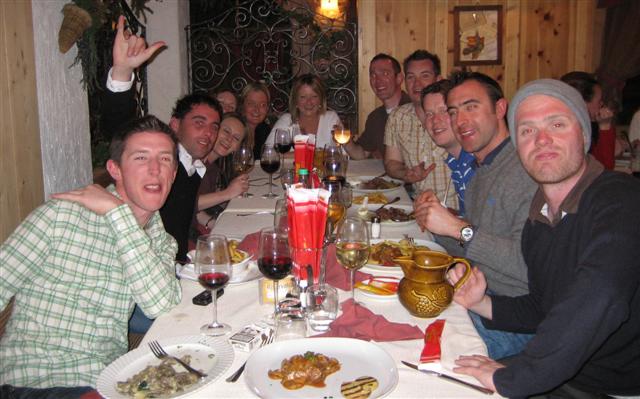Last weekend I spent Wednesday, Thursday and Friday at the Irish Web Technology Conference in Dublin. I’ve only been to one other conference (@media 2005) before and I have to say that IWTC 2008 blew it out of the water. The main reason for this is the focus on technical topics. I enjoyed all of the sessions that I attended. The attendance was surprisingly low but I reckon that will change next year.
There was three tracks targeted at different audiences, Venture Financiers etc. – Track 1, Web Developers – Track 2 and 3. I only attended sessions from track 2 and 3.
Sessions I attended.
I’m always interested in Web Frameworks and had looked at Django before but had chosen TurboGears over it. The Django session was very interesting with a full sample app coding session too so we could see exactly how the framework worked. I also learned that caching, E-Tags, gzip and memcache are all built in to Django which I didn’t know.
I attended one of Robin’s session at @media 2005 and this one was just as good. It really makes a difference when you get to see exactly why it is that we try to develop to standards and with accessibility in mind. He didn’t mention the WCAG samurai errata and I hadn’t read enough about it to discuss it with him.
User Testing for websites – Ken Brennock
This was a very high level look at user testing. Probably the least impressive session but only because I had been expecting a bit more in depth look at testing – in particular what tools can be used effectively for automated testing – Selenium etc.
I tried developing with RoR a few months back but due to time constraints and starting my new job – I had to abandon it. I found it a very good framework but the learning curve is a lot steeper than the RoR community would lead you to believe. The session was very good – with some live coding and discussions on Merb (multi-threaded version of RoR). There was plenty of plugging for EngineYard (in a nice way) so I reckon if I ever do manage to release an RoR app -it’ll be those guys who’ll be looking after it.
This was the best session I attended. I’d been doing a good bit of reading on REST and had watched a couple of screencasts on the subject so I was looking forward to the session. Topics covered included REST, AtomPub (and variations/extensions on it), Collection/entries pattern and the HTTP verbs. This session made me want to go home and start RESTifying the KarovaStore Framework (I didn’t 🙁 ).
I was sceptical of Silverlight and this session didn’t change my mind. It was very high level with plenty of demos but no real low level examples of any Silverlight apps. I understand that you can do a lot of fancy media apps with Silverlight but it just seems a bit too flashy or something for me to want to learn more about it. I also learned that if I want to effectively develop any Silverlight apps I’ll have to but yet another MS studio (Expression studio). I just bought Visual Studio 2005 so that won’t be happening any time soon.
I do like AIR and I do like the idea behind it but I’m too much of a fan of the Mozilla framework to move over. There are benefits of using AIR over something like Prism like flash, flex and nice installers but I can’t bring myself to leave Mozilla. I found the whole runtime and app idea (sqlite, update API) and the structure of AIR apps very very similar to the Mozilla framework and XPI extensions. I did ask whether the Mozilla framework and XPI idea inspired AIR – I was told that this wasn’t the case. It doesn’t make a difference really but I find it hard to believe that they didn’t take any of their ideas from Mozilla.
I had seen references to Open ID many places but never really understood what it was. It was a very interesting session with discussions on Open IDs shortcomings and where it really is useful. I definitely like the idea of Open ID and will be signing up with on the the providers discussed. I like to whole Yadis protocol and discovery methods discussed ad the possibility for using Open Ids to prove identity rather than just a way of grouping log in details.
Enabling trust on the web – Paul Walsh
Due to a schedule change. I actually went to this session by mistake. I’m glad I did. I was excellent. I love anything that help bring us closer to a semantic – machine readable web and the topics discussed in this sessions definitely does that. I had never heard of Content Labels (Powder) or ICRA before. There are schemes for e-commerce sites too so KarovaStore will be getting some Content Labels very soon 🙂
Agile Web Development – Sean Hanley
I’ve worked on a couple of teams over the last few years that had adopted varying levels of hybrid Agile development methodologies so I was interested to hear what the speaker thought would be the best approach to take to achieve best productivity. Some key points discussed were, management had to be on-board, Refactoring, Velocity, collaborative culture, No blame culture, Technical debt, Acceptance testing and the investment in hardware. Three great quotes from the session –
“Culture eats strategy for breakfast” – you can plan all you want but if the team isn’t behind it, you can forget about it
“People are the most important resource” – without good staff, you have nothing
“Smart and gets things done” – in reference to an ideal employee
I have a strong interest in the mobile web and I always use Opera Mini on my W880i. I also had the idea of the RSS2WML project that I started (but never finished 🙁 ). The session was very interesting in showing the absolute immense market that the mobile web is and that how it is not being used to it’s full potential. The plethora of browser/app/platform combinations was also discussed. The thing that annoyed me most about Vodafone Ireland was the ‘munging’ of all HTTP traffic, the reasons for this were also discussed.
GPS and location based services is also something that has potential but I see it as a very nice use of technology but of no real practical use to users.
Developing Secure Web Applications –David Rook
This session was very high level but did point out what issues that app developers face with regard to SQL injection, XSS etc. and what could potentially be methods of attack in the future (XSRF – Cross-site request forgery).
The last session of the was very short (thankfully as I was very tired). It discussed the uses for software like Google Analytics and how they can benefit developers and marketeers. Very high level but useful to see the benefits of tracking the usage of a site.
In summary
The quality of speakers was amazing. All very very knowledgeable and able to answer any question put to them. I would have paid 5 times the registration fee to attend. Sign me up for next year!!


